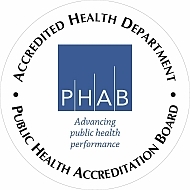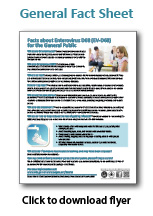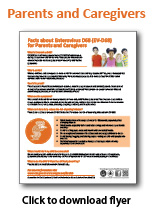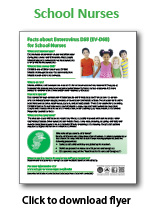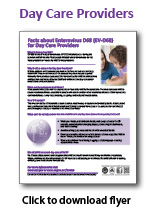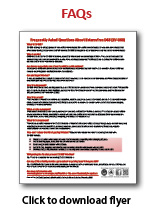Enteroviruses are common viruses that often occur during the summer and fall months. Most people infected with enteroviruses do not have symptoms or only mild flu-like symptoms.
EV-D68 is one of 100 enteroviruses. EV-D68 infection is thought to occur less commonly than infections with other enteroviruses.
Infants, children, and teenagers are most at risk for enteroviruses and may become ill. They are at increased risk because they have not yet acquired immunity from previous exposures. It is more serious for children with asthma and/or other respiratory diseases.
The virus can be found in secretions such as saliva, nasal mucus, or sputum and probably stools. It can spread through close contact with infected people and is likely to spread from person- to -person when an infected person coughs, sneezes, or touches contaminated surfaces.
Most people infected do not have symptoms or have only mild flu-like symptoms. The virus can cause mild to severe respiratory illness, especially in people with asthma and/or other respiratory diseases. Other symptoms can include fever, runny nose, sneezing, coughing, and body and muscle aches.
There is no specific treatment for EV-D68 infection. Most infections are mild and they often go away on their own, only requiring treatment for specific symptoms. However, some people with severe respiratory illness may need to be hospitalized for more advanced therapy.
There is no vaccine for preventing EV-D68 infections. Ways to help reduce the risk of becoming infected with EV-D68 includes:
• Wash hands often with soap and water for 20 seconds, especially after changing diapers.
• Avoid touching eyes, nose, and mouth with unwashed hands.
• Cover coughs and sneezes with a tissue.
• Avoid kissing, hugging, and sharing cups or eating utensils with people who are sick.
• Disinfect frequently touched surfaces, such as toys and doorknobs, especially if someone is sick.
Seek medical attention immediately.
No. A child/individual who is sick with a fever and respiratory symptoms should stay home until they are free of symptoms for 24 hours to avoid passing on the illness.
For more information visit www.cdc.gov.
Sources: New York State Department of Health and the
Centers for Disease Control and Prevention (CDC)
|


